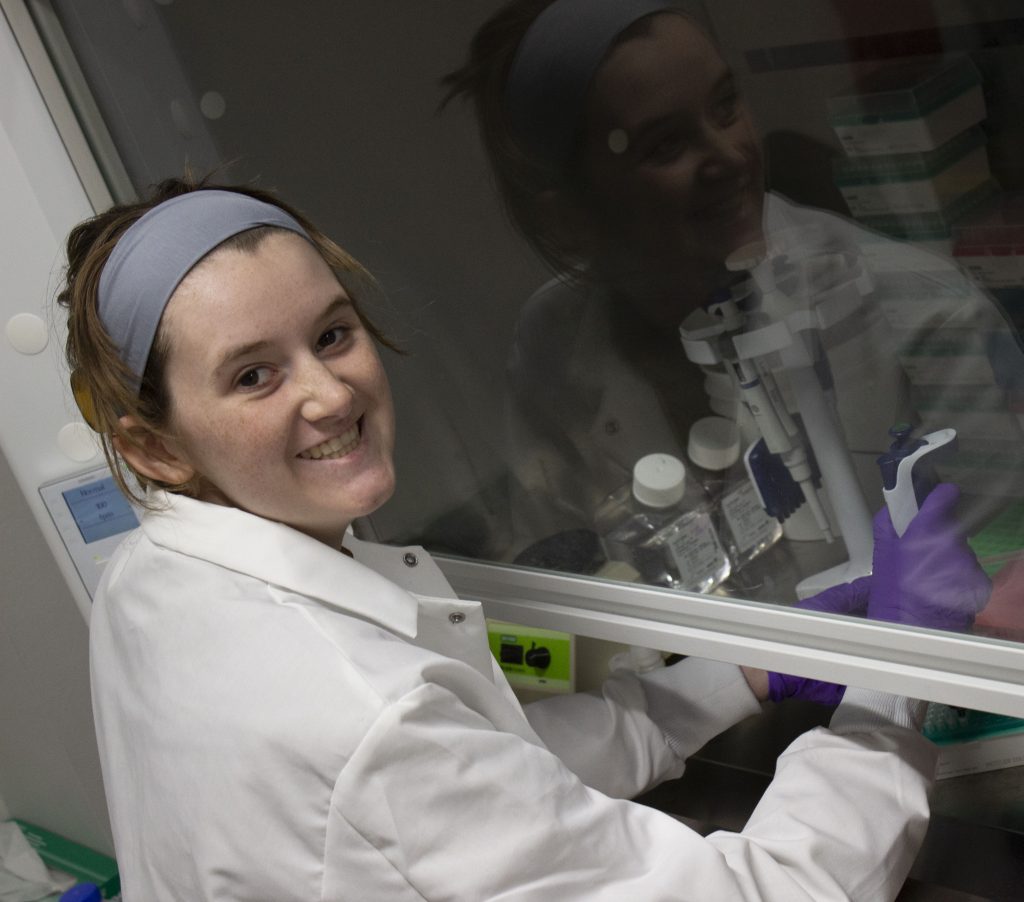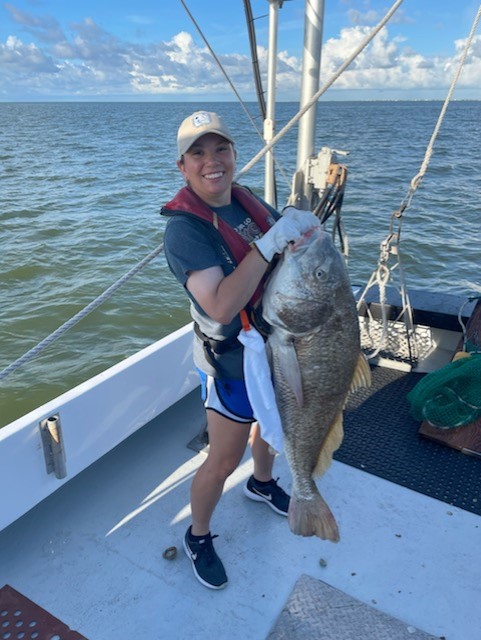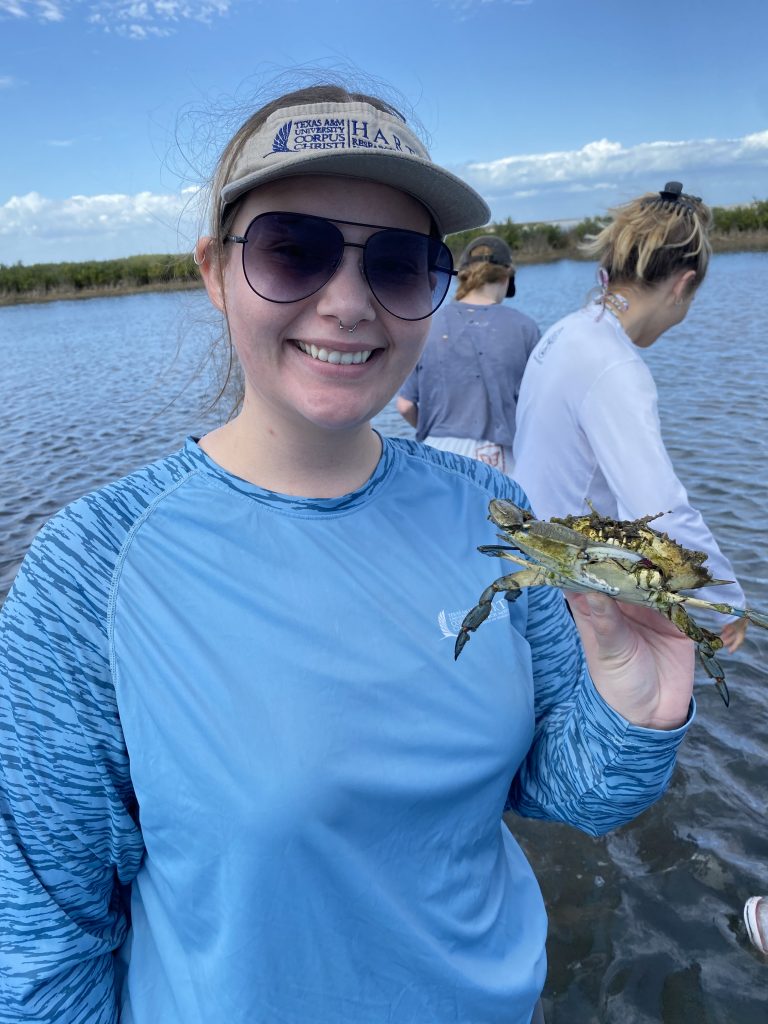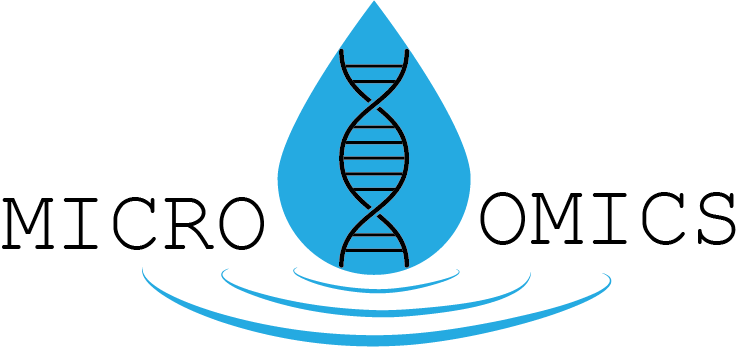
Nora Bleth, Ph.D Marine Biology:
I attended the University of Minnesota-Duluth in undergrad with the intention of studying water; I didn’t know how or what, but the university stationed on the largest of the great lakes seemed like a good place to start. I loved attacking questions by seeing the environments firsthand, so I signed up for a Field Studies in Marine Biology Course at Friday Harbor Labs in Washington. Afterwards, I conducted my undergraduate research through the Research Experience for Undergraduates program (REU) at the Marine Biological Laboratory in Woods Hole, MA where I studied underwater bioacoustics in the Oyster Toadfish. After graduation, I worked in a commercial testing laboratory, and eventually got a job at the Hormel Foods Research and Development Laboratory in their microbiology department. Connecting my experience studying marine biology on two coasts and my work experience in microbiology, I sought out research labs examining anthropogenic impacts on microbial ecosystems in the ocean. I’m currently in my PhD, working to understand the contributions of individual sources to fecal pollution in Baffin Bay, TX.
Education:
Under Construction.

Lydia Cates, M.S Marine Biology:
Born and raised in North Texas, I quickly developed an out-of-place fascination with marine life, specifically the influence that the marine environment and its inhabitants can exert on human life. By the time I hit high school, I was able to narrow down my interests to researching the health and immune systems of marine organisms in order to find applications in the human medical field. This led me to complete my bachelor’s degree in biology with a marine concentration at Texas A&M University-Corpus Christi in the summer of 2021. During my time at TAMU-CC I completed an internship with Texas Parks and Wildlife Department-Coastal Fisheries Division where I was able to get my first real-world experience in research. The internship yielded a published paper on B. marinus status and trends in Texas bays, the first of its kind in Texas. Despite this success, my career took a major turn when I accepted a position with Texas Wildlife Services to complete the management of feral hogs in south Texas. After nearly two years in this position, I was able to find a connection back to the marine environment. This connection has allowed me to begin work on my master’s degree under Dr. Turner. My research will focus on the bacterial load that feral hogs introduce upstream that then flows into Texas bays and can be uptaken by filter feeders, such as oysters.
Education:
B.S. Biology with a concentration in Marine Biology, Texas A&M University-Corpus Christi, Summer 2021
M.S. Marine Biology, Texas A&M University-Corpus Christi, Projected Graduation Fall 2026.

Isabella Cevallos, M.S. Marine Biology:
From an early age, I was drawn to science, with a growing fascination for the ocean and marine life that led me to pursue a career in marine biology. Originally from San Antonio, TX, I moved closer to the coast in 2019 to attend Texas A&M University-Corpus Christi to follow this passion, earning a Bachelor of Science in Marine Biology with a minor in Psychology in 2023. As an undergraduate, I worked under Dr. Keisha Bahr, assisting with coral research. I worked with corals in collaboration with the FLDEP to gain a better idea of coral metabolic responses to dredging or suspended sediment. After graduation, I worked at the Harte Research Institute (HRI) for two years, assisting with water quality and benthic ecology field sampling and laboratory analysis under Dr. Michael Wetz and Dr. Jennifer Pollack. I had extensive experience participating in various projects and outreach events. I also connected with coastal communities about environmental conservation and habitat restoration. Currently, I am pursuing my master’s degree in marine biology at TAMUCC under Dr. Turner, where my research, in collaboration with the EPA, focuses on two vital tributaries, San Fernando and Petronila Creek. My project integrates water quality parameters and benthic macroinvertebrate community composition to assess anthropogenic stress on the ecosystem health of the Baffin Bay hypersaline estuary.
Education:
B.S. Marine Biology, Texas A&M University-Corpus Christi, Spring 2023
M.S. Marine Biology, Texas A&M University-Corpus Christi, Projected Graduation Spring 2027
